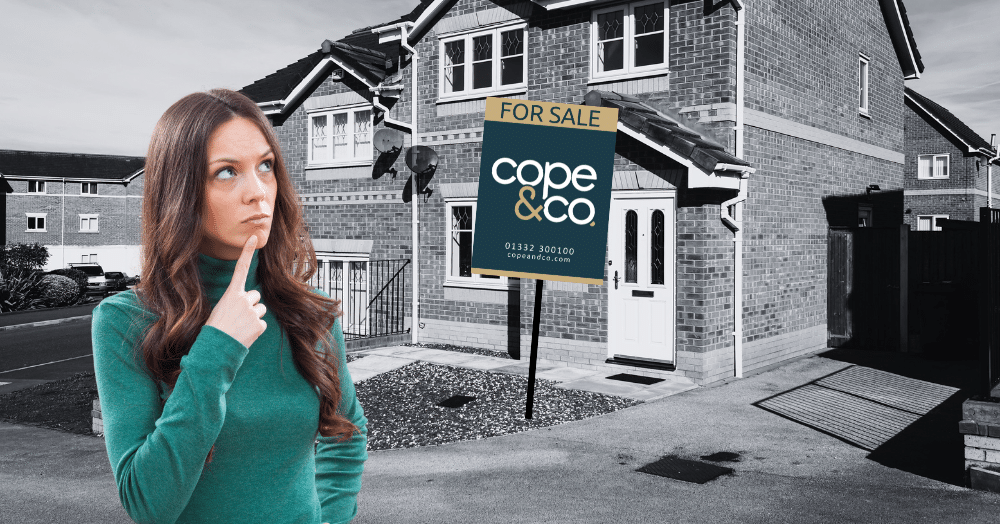You’ve decided that you want to move home but should you start looking for a new property before or after you’ve agreed on a sale of your current one? In this article we look at the options available to you and why it is really important to be as ‘proceedable’ as possible.
You’ve made that massive decision that you want to move home.
The next big dilemma is whether you should you start looking for a new home before or after you’ve agreed on a sale of your current one, or at least put your home on the market?
If you sell your current property and then begin searching for your new home, what do you do if you can’t find anything to buy?
If you find the home of your dreams, but your current home doesn’t sell quickly enough, and someone else buys it before you do, you’ll be so disappointed.
Finding your New Home First
You’ve spent endless evenings scouring Rightmove and eventually found the perfect property, your next dream house, your ‘forever’ home.
You arrange a viewing and obviously fall head over heels in love with it. It’s everything you’ve ever wanted, and you know you’ll be happy here for years and years.
You’ve already visualised the interior design and found the ideal position for your furniture. The kids have chosen their bedrooms and everyone is already thinking about the many wonderful summer afternoons and family Sunday lunches you’ll have here.
This is the one.
Just one obstacle… you need to sell your current house, and you’ll need to be quick. There have been a lot of viewings on your new dream home and you’re worried that someone else will make an offer. You’re now in a race against other potential buyers for this one particular house.
You don’t want to move if you don’t get this property. What are your options?
- Sell your property at a reduced price to get it sold quickly?
- Make a crazy high offer on the other property, and hope no other buyers go that high?
- Accept the first offer you get on your property because you have no choice; you don’t have time to hang around?
It all sounds quite frantic, doesn’t it? A very stressful experience.

Selling Your Property First
The other option is to try to sell your property first. Get it on the market and see what happens. No rush, no stress.
Perhaps you’ll browse some property websites casually, but you might not even view any of them yet – what’s the point? You can’t buy them right now anyway.
You’d be happy with any property; you are not picky. So you put your home on the market and then see what’s available once you have accepted an offer.
By doing this:
- You can hold out for the top price,
- Negotiate hard with your potential buyers,
- Have a much simpler, stress-free selling experience
This all sounds great, but there are drawbacks to this option too.
What if there are no properties for you to buy when you have a buyer keen as mustard, trying to rush you along. They are trying to set completion dates, and you don’t even have anywhere to move to?
If you can’t find a suitable property, perhaps you’ll have to move into a rented property? This could mean a change of location or maybe even putting your belongings into storage? It is a growing trend; sell, rent then buy.
If you rent, you could put your home on the market with no upward chain – this means that the sale of your property is not dependent upon you purchasing a new one. This is often attractive to potential buyers. A 6 month tenancy gives you chance to search for your ideal home. At this point, you are effectively a first time buyer with no property to sell and are extremely ‘proceedable’ and very attractive to a potential seller.
After the 6 month initial fixed term tenancy has expired, the tenancy will go ‘periodic’, which means that only a month’s notice is required to leave the property – an ideal timeframe to coincide with the purchase of your new dream home.
You may feel that the rent you will have paid is ‘dead money’. However, you have to take into account that you have put yourself in prime position to buy your desired new home as well as potentially getting it for a lower price because of how quickly you can complete the deal. It is up to you to weigh up whether the sell/rent/buy option is an advantageous one.
Proceedability
A major factor within the property market now, and one which a seller is increasingly focused on is ‘proceedability’ – how proceedable a potential buyer is.
Have they sold their own home? Is it even on the market yet? Have they got a mortgage ‘Agreement in Principle’? Estate agents typically concentrate their efforts on the buyer who puts in the biggest offer, however, the buyer’s individual ‘proceedability’ can be a large factor in deciding which buyer to proceed with.
In an ideal world, it is always better to sell your current home before you buy a new one. By doing so, you’ll have the funds from your sale already, you’ll be able to make a potentially larger deposit on your mortgage, and you’ll put yourself to the front of the queue of potential buyers.
Work with your estate agent to get a market analysis of what you can expect your old home to sell for. Study the current market, and see how long it takes on average to sell homes comparable to yours.
The Solution
As with most things in life, it comes down to balance. Have a few properties in mind, but don’t fixate on one.
Keep a shortlist, and revisit those properties once you have an acceptable offer. This way, you’re prepared but won’t be disappointed if the ‘one’ house you want to buy sells before you do.
The key here is flexibility.
Financing Without Selling
Perhaps you could consider creative ways to finance the purchase without selling your home? If you can fund the purchase without the equity in your current property, you can have your cake and eat it!
Buying the property you want immediately and then selling your current property once you’ve moved. You might be able to raise funding from other sources, such as bridging finance, to fund the purchase of this second property.
A seller may be more likely to negotiate with you on the price of a property if you can move without selling because you aren’t in a chain. Therefore there’s a lower risk of the sale falling through. You buy the property you want at a competitive price and can sell your current property later, once you have already moved out. This would also mean that you don’t have to worry about viewing appointments, and you can leave it all to the estate agents.
If you have the available funds, or the ability to raise funds, this is likely to be the most stress-free option.
The only additional expense with this option would be any interest accrued on additional loans or lost interest you’ve missed out on because you’ve liquidated your savings.
But, if you can negotiate that amount off of the property, you’re buying, using this strategy may not actually cost you any more money. It’s win, win!
In truth, there is no right or wrong answer. You have to do what you feel most comfortable with.
If you want to start your search for a property to buy, why not register your details with our Heads Up alert system by clicking here, which will notify you of new properties launched to the market before they go on the property portals!
If you would like to discuss any aspect of selling or buying a home, our team are always available of offer any advice or support.







